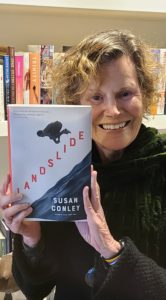 Dear Friends,
Dear Friends,
Who knew, a year ago, what was coming? Who knew George and I would have to stop working at the store on March 14 and wouldn’t be able to get back for almost 12 months? We’ve missed being there so much. Yesterday we got our 2nd doses of the vaccine and in three weeks we plan to be working at the store again. It’s been a long year for all of us and we hope you’re safe and well.
So – February! The month of love – with Valentine’s Day coming up. Get your honey a book this year. Maybe love poems, maybe not. Maybe a great novel. I just read the latest from Vendela Vida, We Run the Tides, in our store now. I read it after hearing George chuckling while listening to the audio book. “Oh, you’re going to love this book!” he kept saying. And he was right. From the first paragraph I was hooked. The voice – that ephemeral quality we talk about when we talk about fresh, original, unforgettable – in this case the voice is 14 year old Eulabie’s. Her neighborhood is in the Sea Cliff area of San Francisco. The adults are equally well drawn, and the situations – you want to stop her and shake her and say, Don’t! Funny, honest, heartbreaking, yet satisfying.
And how about a Valentine treat for the little ones in your life? If you can’t come in to browse, tell us the age and interest and we’ll find a picture book for you. Or a middle grade story. For older teens, Jennifer Niven’s latest YA, Breathless. She says it’s her ode to Forever but I like it better. Sexy and romantic. You don’t have to be a teen to enjoy this book. But you may wish you’d had a first love like this one.
Then there are the two authors I’ll be talking to in the next month. First, Lily King, whose latest novel, Writers and Lovers, a book I liked so much I read it twice in a row, is now out in paperback. I’ll be talking to Lily on a Zoom as part of the Friends of the Library series on Feb 15.
And on March 2 I’ll be chatting with Susan Conley in a virtual event for Books & Books – about her new book, Landslide, another novel I devoured and highly recommend to all. Susan and Lily are friends, they live in Maine, the setting for Susan’s book. A stormy story in many ways, a marriage that may or may not survive, parenting teen boys, work, and a nor’easter that sets it all in motion. You’ll be thinking about these characters long after you read the last page.
Our bookstore will celebrate its 5th birthday on Saturday, Feb 13. With a drive by, walk by, bike by party. Can you believe it’s been five years? We can’t. We’ll be there in our mini with the top down for masked and socially distanced greetings. Hope you can stop by. And maybe even buy a book.
We have to thank our loyal and hard-working staff for keeping the store going this year. Emily, Gianelle, Lori, Robin. You are the best! And big thanks to you, our loyal customers for doing your part. A special shoutout to Meg Cabot, who told her readers to order her books from our store. We love you, Meg!
Let’s hope it won’t be long until we can meet in person for store events. For now, we’re open and ready to help in any way we can.
Stay well.

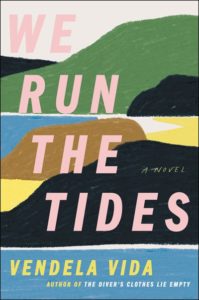 We are back working at the store and SO happy to be there after a year of isolating. We’re double dosed but masked, of course. Recently I’ve read WE RUN THE TIDES, a novel by Vendela Vida. I actually picked it up because George was reading it and I heard him laughing. That caught my attention. He said, “You are going to Love this book!” And I did. It’s set in the Sea Cliff section of San Francisco in the 80s. It’s as “achingly beautiful” as it is funny.
We are back working at the store and SO happy to be there after a year of isolating. We’re double dosed but masked, of course. Recently I’ve read WE RUN THE TIDES, a novel by Vendela Vida. I actually picked it up because George was reading it and I heard him laughing. That caught my attention. He said, “You are going to Love this book!” And I did. It’s set in the Sea Cliff section of San Francisco in the 80s. It’s as “achingly beautiful” as it is funny.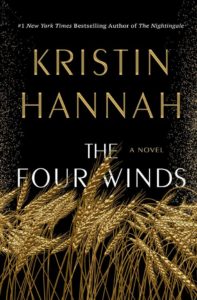 I listened to THE FOUR WINDS by Kristin Hannah, a master storyteller. She tells us about a family during the Dust Bowl and it’s a story filled with unforgettable characters. My ears started to hurt from not taking out my air pods. But I had to keep listening. (Get the digital audiobook.)
I listened to THE FOUR WINDS by Kristin Hannah, a master storyteller. She tells us about a family during the Dust Bowl and it’s a story filled with unforgettable characters. My ears started to hurt from not taking out my air pods. But I had to keep listening. (Get the digital audiobook.)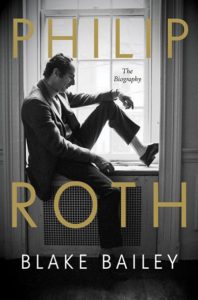 Now I’m excited to have an Advanced Reader’s Copy of the first 200 pages of Blake Bailey’s biography of Philip Roth, publishing in April. If you’re a Roth fan as I am (some might say I’m obsessed) you have to read this book. “Don’t try to rehabilitate me,” Roth told his biographer, “Just make me interesting.” Baily has certainly done that. A great biographer writing about a great writer. You can pre-order your copy now. And if you haven’t read Roth this might be the time to start. My go-to title is AMERICAN PASTORAL.
Now I’m excited to have an Advanced Reader’s Copy of the first 200 pages of Blake Bailey’s biography of Philip Roth, publishing in April. If you’re a Roth fan as I am (some might say I’m obsessed) you have to read this book. “Don’t try to rehabilitate me,” Roth told his biographer, “Just make me interesting.” Baily has certainly done that. A great biographer writing about a great writer. You can pre-order your copy now. And if you haven’t read Roth this might be the time to start. My go-to title is AMERICAN PASTORAL. 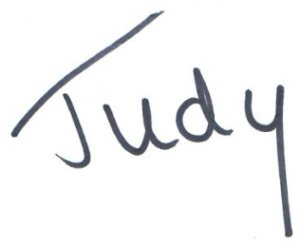



 Keep up with news about the store, including what we’re reading, new events, sales, and an occasional update from Judy Blume. Subscribe to our email newsletter.
Keep up with news about the store, including what we’re reading, new events, sales, and an occasional update from Judy Blume. Subscribe to our email newsletter.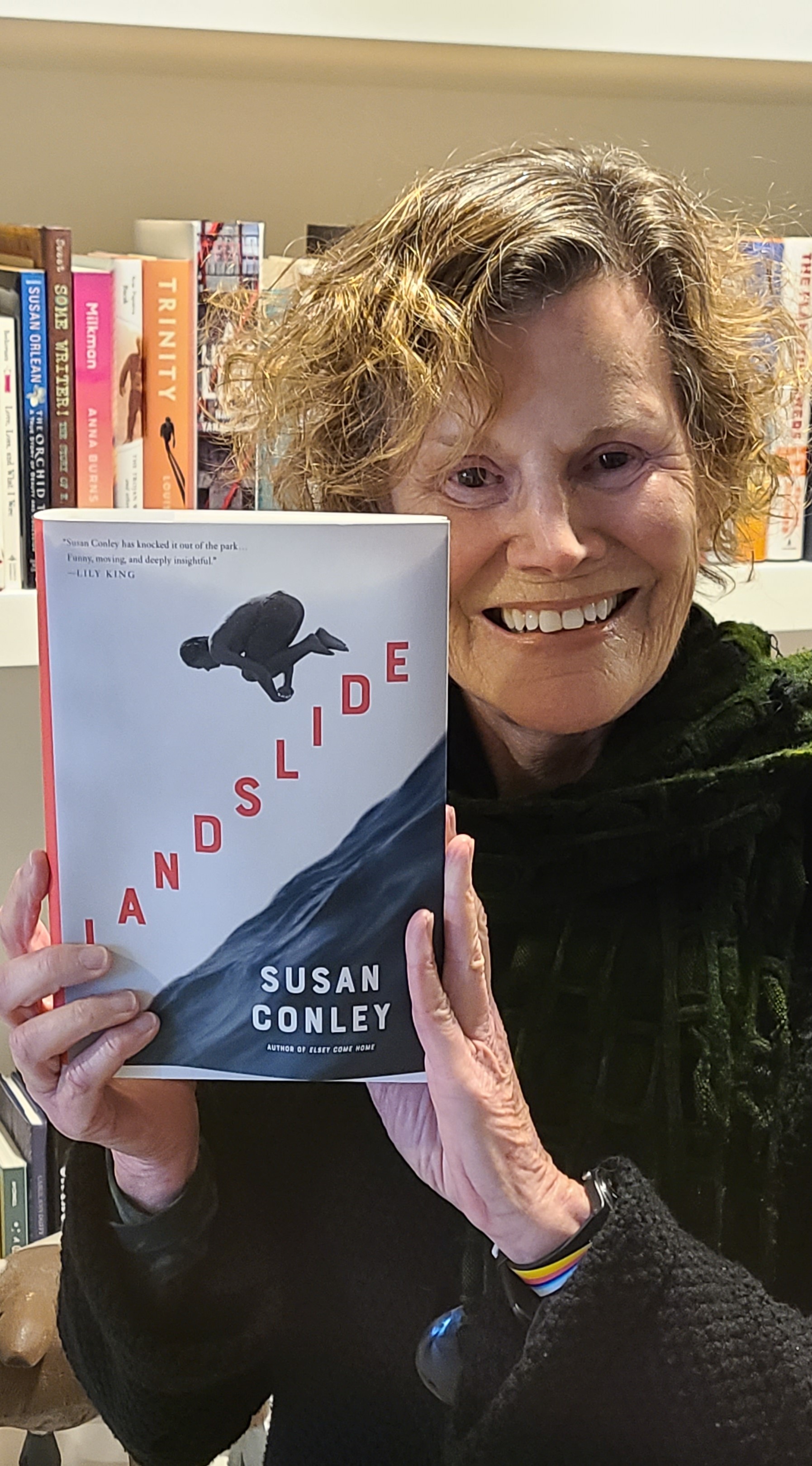
 Dear Friends,
Dear Friends,
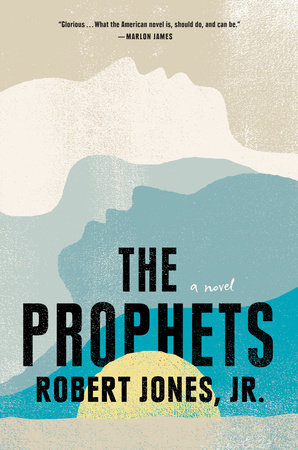
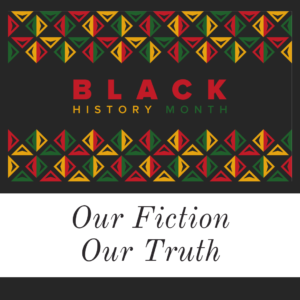 For Black History Month this year our focus is on fiction.
For Black History Month this year our focus is on fiction. We’ve chosen a stunning debut novel,
We’ve chosen a stunning debut novel, 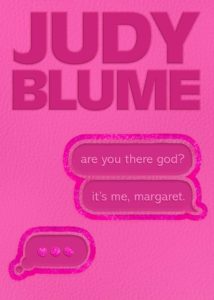
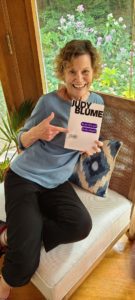 Dear Friends,
Dear Friends,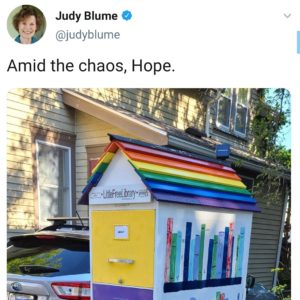
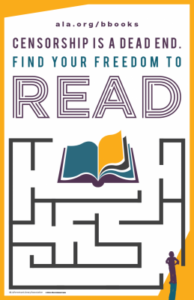
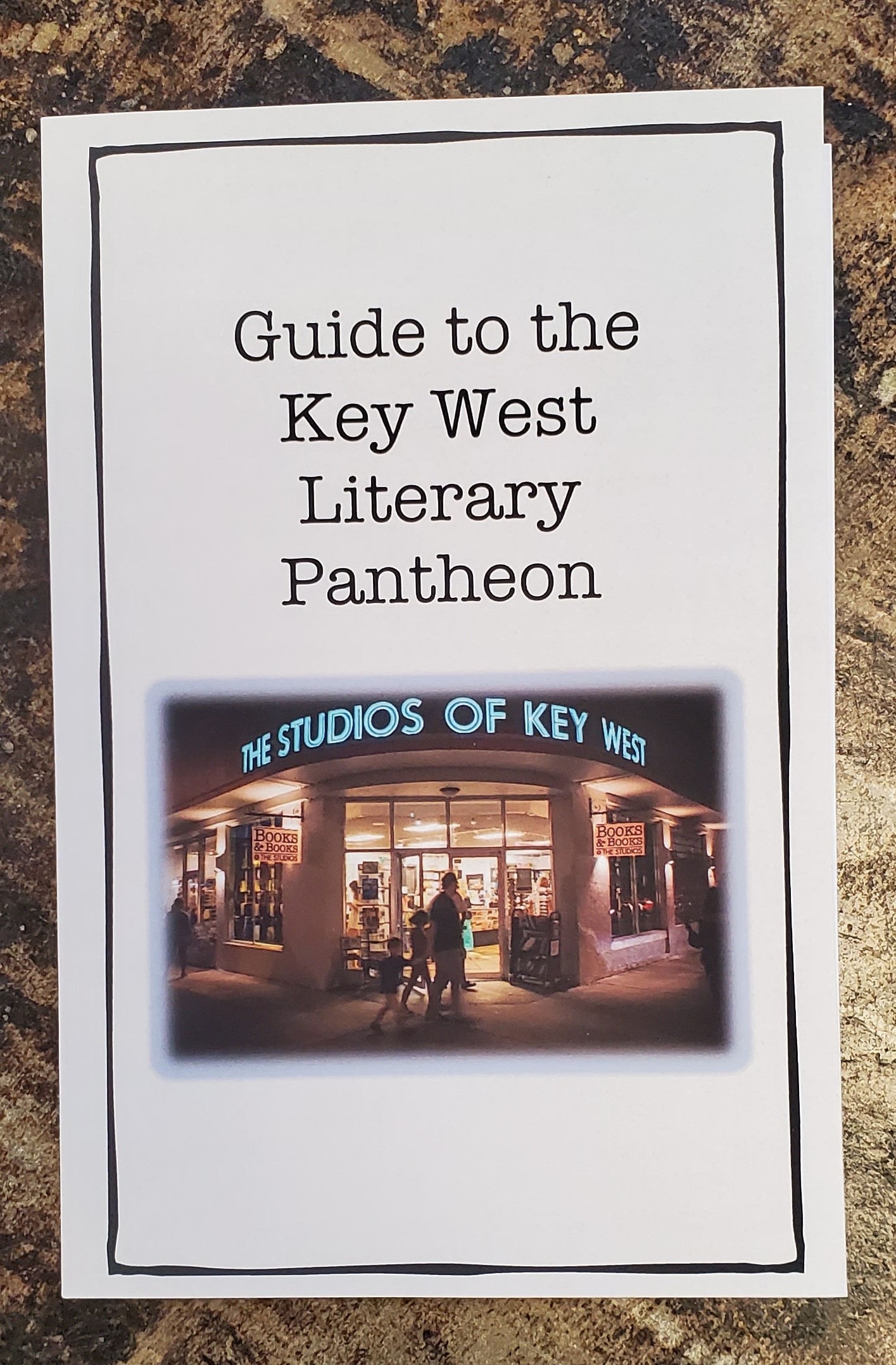
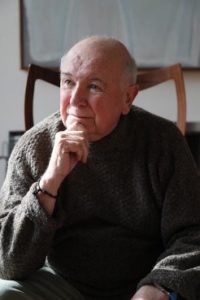 Terrence McNally (1938-2020) has been described as “the bard of American theater” and “one of the greatest contemporary playwrights the theater world has yet produced.” McNally was a long-time seasonal resident and homeowner in Key West, and was recognized as “part of the theatrical fabric of this community.” Most recently, a new production of his play “Frankie and Johnny in the Clair De Lune” was scheduled to open at the Red Barn Theatre on the day of his death, but was cancelled, like him a victim of the novel corona virus.
Terrence McNally (1938-2020) has been described as “the bard of American theater” and “one of the greatest contemporary playwrights the theater world has yet produced.” McNally was a long-time seasonal resident and homeowner in Key West, and was recognized as “part of the theatrical fabric of this community.” Most recently, a new production of his play “Frankie and Johnny in the Clair De Lune” was scheduled to open at the Red Barn Theatre on the day of his death, but was cancelled, like him a victim of the novel corona virus.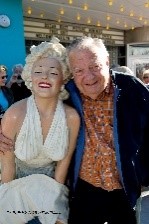 J. Seward Johnson, Jr. (1930-2020) was a man of huge talent and creativity, known principally for his ultra-realistic bronze sculptures. He wintered for many years in Key West, and was a well-known and popular member of the artistic and literary community. Johnson left his mark in Key West with a number of installations, including the assemblage of figures over the tarmac-side entry to the airport that welcomes passengers to town. Perhaps his most photographed local installation is the figure of Marilyn Monroe in front of the Tropic Cinema.
J. Seward Johnson, Jr. (1930-2020) was a man of huge talent and creativity, known principally for his ultra-realistic bronze sculptures. He wintered for many years in Key West, and was a well-known and popular member of the artistic and literary community. Johnson left his mark in Key West with a number of installations, including the assemblage of figures over the tarmac-side entry to the airport that welcomes passengers to town. Perhaps his most photographed local installation is the figure of Marilyn Monroe in front of the Tropic Cinema.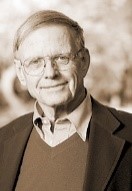 Robert D. Richardson (1934-2020) was a distinguished historian and biographer, focusing on leading American thinkers of the 19th Century, including William James, Ralph Waldo Emerson and Henry David Thoreau. He was winner of the Bancroft and Francis Parkman Prizes (the most prestigious in the field of history). If you wanted one word to describe Bob, it would be “gentlemen,” in both senses of the word. He was certainly a man — a distinguished leader — but he was a gentle friend to the many in town who knew him.
Robert D. Richardson (1934-2020) was a distinguished historian and biographer, focusing on leading American thinkers of the 19th Century, including William James, Ralph Waldo Emerson and Henry David Thoreau. He was winner of the Bancroft and Francis Parkman Prizes (the most prestigious in the field of history). If you wanted one word to describe Bob, it would be “gentlemen,” in both senses of the word. He was certainly a man — a distinguished leader — but he was a gentle friend to the many in town who knew him.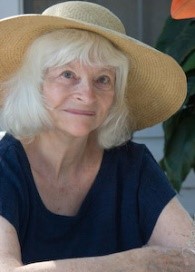 Alison Lurie (1926-2020) described by the New York Times as a “tart-voiced novelist of manners,” who “wrote about academics and intellectuals, straying spouses, snobs and artists, in novels of close observation and sharp prose.” She was the author of 11 works of domestic and black comedy, including the 1984 Pulitzer Prize winning novel
Alison Lurie (1926-2020) described by the New York Times as a “tart-voiced novelist of manners,” who “wrote about academics and intellectuals, straying spouses, snobs and artists, in novels of close observation and sharp prose.” She was the author of 11 works of domestic and black comedy, including the 1984 Pulitzer Prize winning novel 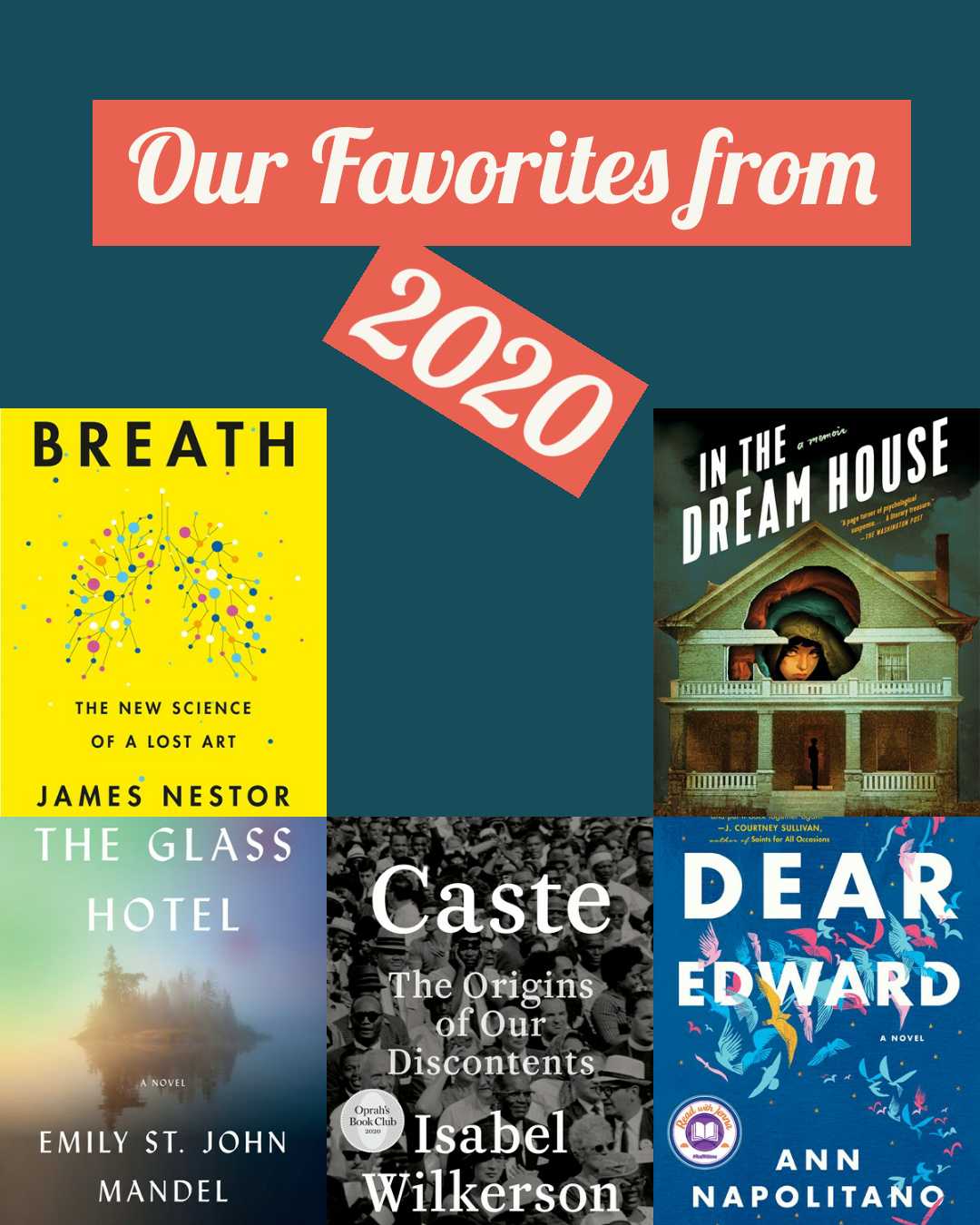
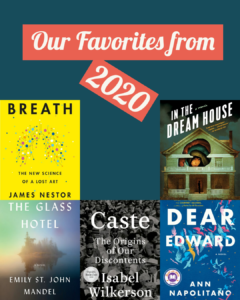
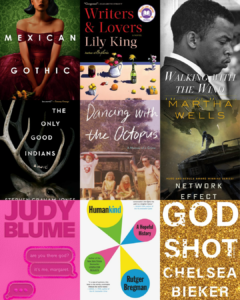
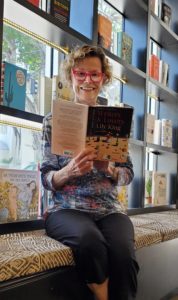
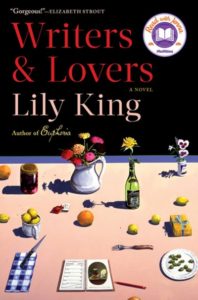
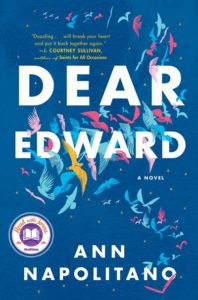
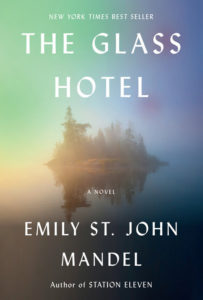
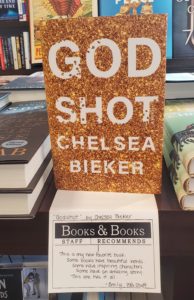
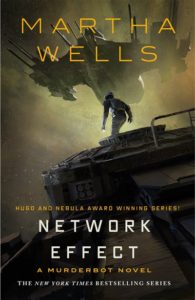
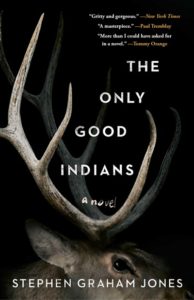
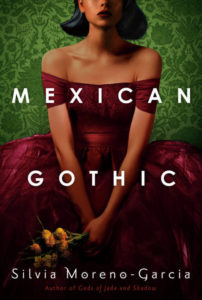
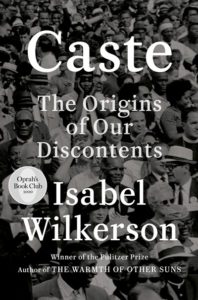 Caste : The Origins of Our Discontents
Caste : The Origins of Our Discontents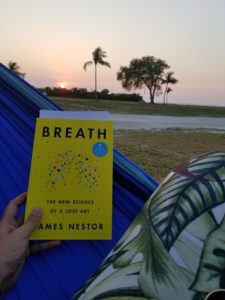
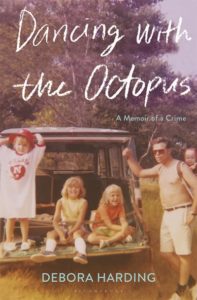
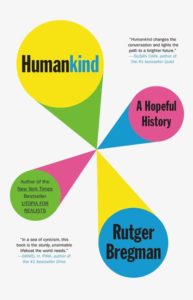
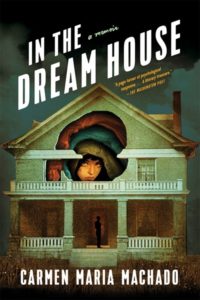
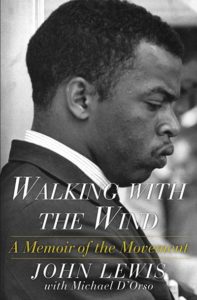
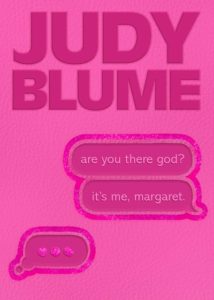 Are You There God? It’s Me, Margaret: 50th Anniversary Special Edition
Are You There God? It’s Me, Margaret: 50th Anniversary Special Edition
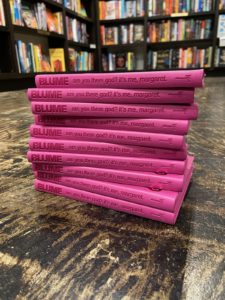 UPDATE: Thanks, everyone! Winners are in the process of being notified.
UPDATE: Thanks, everyone! Winners are in the process of being notified.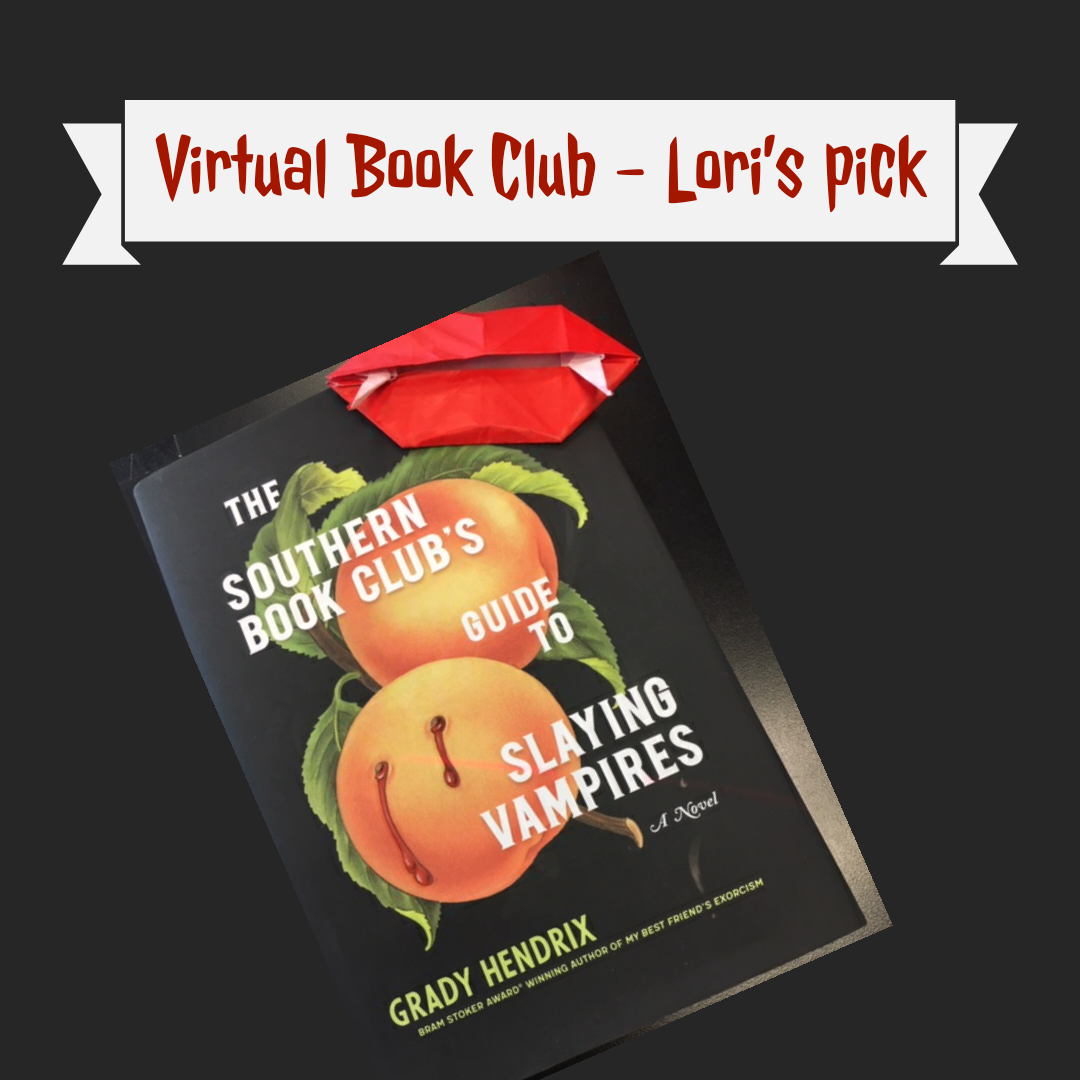
 In Grady Hendrix’s latest horror tale, 90’s suburban Charleston housewives form a new “true crime” book club after the massive meltdown of their old one, and find themselves confronting a terrifying predator who has infiltrated their circle. Stepford Wives meet Dracula!
In Grady Hendrix’s latest horror tale, 90’s suburban Charleston housewives form a new “true crime” book club after the massive meltdown of their old one, and find themselves confronting a terrifying predator who has infiltrated their circle. Stepford Wives meet Dracula!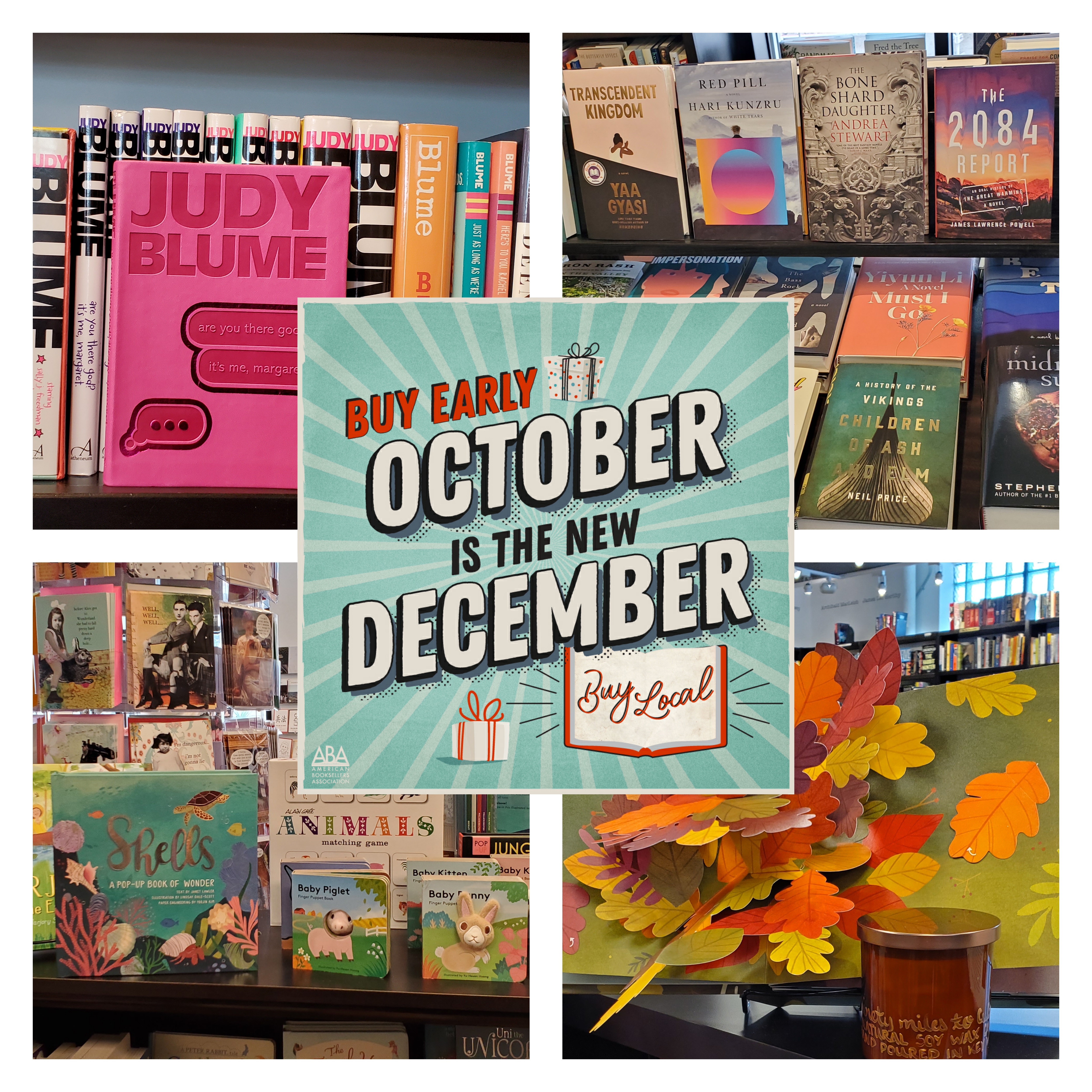
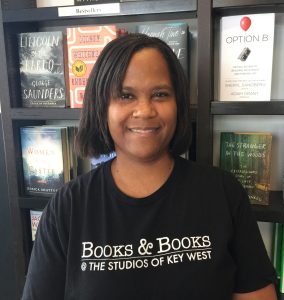
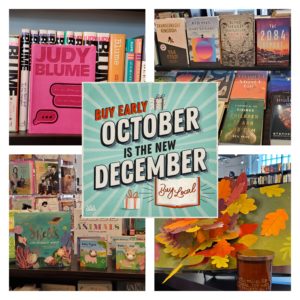 The store’s preparations for the coming shopping season are fully underway. We’re stocking up on gift items like snow globes, mini-clocks, puzzles, and socks — that have proven so popular. We’re cramming our shelves with the latest books, fresh off the presses. Come in any time and take a look. We’re open every day from 10 to 12 for appointment browsing, and from 12 to 5 for general admission. Masks required, and gloves provided at the door.
The store’s preparations for the coming shopping season are fully underway. We’re stocking up on gift items like snow globes, mini-clocks, puzzles, and socks — that have proven so popular. We’re cramming our shelves with the latest books, fresh off the presses. Come in any time and take a look. We’re open every day from 10 to 12 for appointment browsing, and from 12 to 5 for general admission. Masks required, and gloves provided at the door.